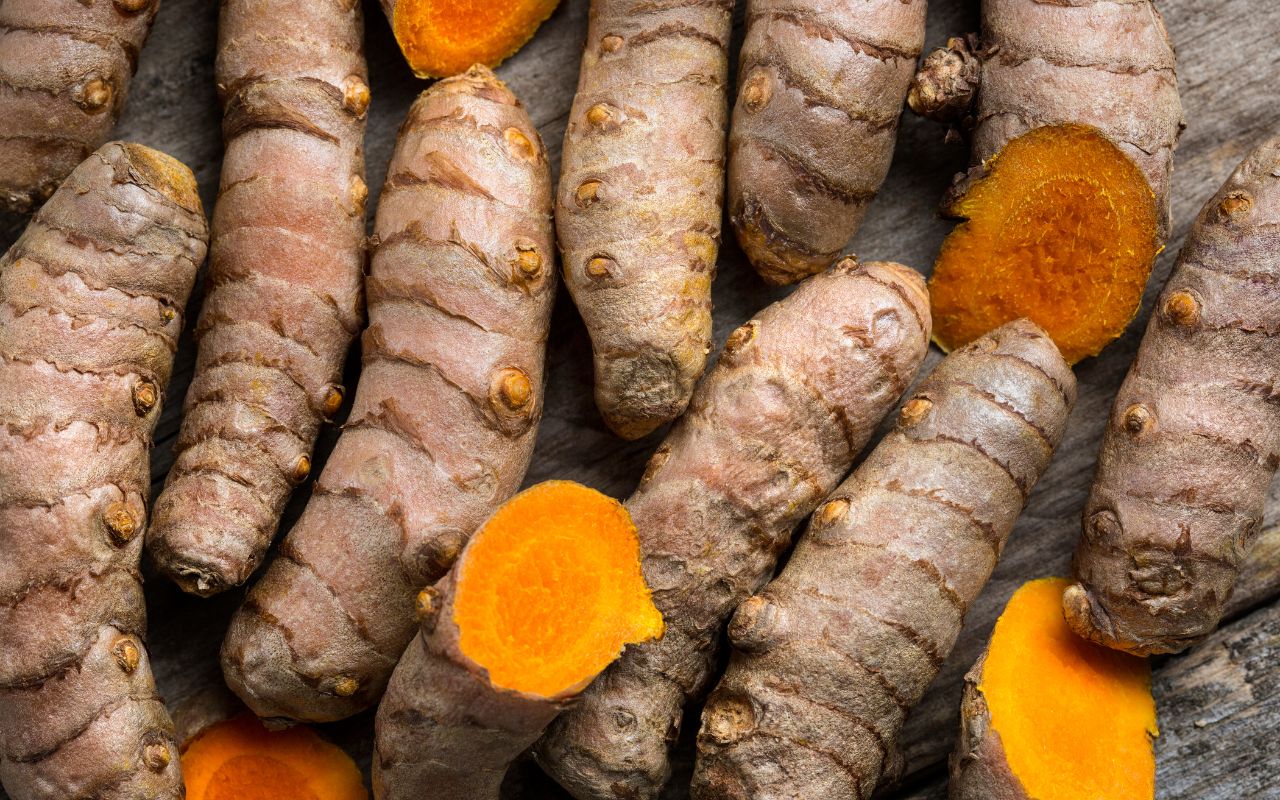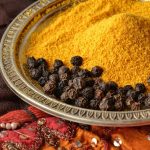Turmeric, a golden-yellow spice derived from the root of Curcuma longa, has been revered for its medicinal properties for over 4,000 years. This vibrant spice is not only a staple in Indian cuisine, imparting its distinctive color and flavor to curry dishes, but also a cornerstone in traditional Ayurvedic and Chinese medicine. Turmeric has been studied extensively in recent years, and modern science has begun to unravel the mechanisms behind its wide array of health benefits. This article delves into the multifaceted advantages of turmeric, its applications, and the precautions one should take when incorporating it into their daily regimen.
Turmeric primarily owes its potent medicinal properties to curcumin, a powerful antioxidant and anti-inflammatory compound. Curcumin has been the subject of numerous studies, many of which have been conducted in vitro or on animals. While some research findings have been contradictory, a growing body of evidence supports the notion that turmeric can benefit human health. Among its many potential benefits, turmeric may help combat infections and certain cancers, alleviate digestive problems, and reduce inflammation.
Health Benefits of Turmeric
Turmeric's most celebrated attribute is its anti-inflammatory prowess. Chronic inflammation is a culprit behind numerous health conditions, including heart disease, cancer, metabolic syndrome, Alzheimer's disease, and various degenerative conditions. Curcumin can mitigate these ailments' risk and progression by curbing inflammation.
Anti-Inflammatory Effects
Several studies have demonstrated that curcumin can modulate inflammation at multiple levels. It inhibits molecules like NF-kB, a protein complex crucial to inflammation and immune responses. The Arthritis Foundation has cited numerous studies wherein turmeric significantly reduced joint inflammation, suggesting potential benefits for individuals suffering from arthritis. The foundation recommends taking 400 to 600 milligrams of turmeric capsules up to three times daily for effective inflammation relief.
Pain Relief
Turmeric's anti-inflammatory properties contribute to its efficacy as a natural pain reliever. Many people anecdotally use turmeric to alleviate pain associated with arthritis and other inflammatory conditions. Scientific studies support these claims, with one study finding that turmeric was as effective as ibuprofen (Advil) in reducing pain among individuals with knee osteoarthritis. Participants in the study consumed 800 milligrams of turmeric daily, experiencing significant pain relief.
Antioxidant Properties
Curcumin is a robust antioxidant that neutralizes free radicals and unstable molecules that can damage cells and contribute to aging and diseases like cancer. Antioxidants like curcumin protect the body's cells from oxidative stress. Curcumin scavenges free radicals directly and enhances the body's antioxidant enzymes, providing a two-pronged defense against oxidative damage.
Digestive Health
Turmeric has a long history of use in treating digestive disorders. It stimulates the gallbladder to produce bile, an essential component of the digestive process. This bile production can aid in digesting fats and promote overall digestive health. Additionally, turmeric's anti-inflammatory properties can help soothe conditions like irritable bowel syndrome (IBS) and ulcerative colitis.
Heart Health
Curcumin has several effects that may support heart health. One of the primary benefits is its ability to improve the endothelium's function in the blood vessel lining. Endothelial dysfunction is a significant contributor to heart disease, characterized by an inability of the endothelium to regulate blood pressure, blood clotting, and other vital processes. Studies suggest that curcumin enhances endothelial function as effectively as exercise, making it a promising supplement for cardiovascular health.
Cancer Prevention
Emerging research suggests that curcumin may play a role in cancer prevention and adjunctive cancer treatment. Curcumin influences cancer growth, development, and spread at the molecular level. It can reduce angiogenesis (the growth of new blood vessels in tumors) and metastasis (the spread of cancer) and contribute to the death of cancerous cells. While more human studies are needed to confirm these effects, the current data are promising and suggest curcumin's potential as a complementary cancer therapy.
Using Turmeric in Daily Life
Turmeric is versatile and can be incorporated into one's diet, including fresh turmeric root, dried turmeric pieces, turmeric powder, and supplements. Here are some common ways to use turmeric:
Culinary Uses
Turmeric's culinary applications are extensive. It is a key ingredient in many Indian dishes, where its deep, earthy flavor and vibrant color are highly valued. It is also used in mustard, butter, and cheese. One popular method to consume turmeric is by making turmeric tea. A basic recipe includes one teaspoon of turmeric, cinnamon, half a teaspoon of black pepper, and one teaspoon of honey mixed into a cup of boiling water or milk. Black pepper enhances the bioavailability of curcumin, ensuring the body absorbs it more effectively.
Supplements
Turmeric supplements, available in capsules, powders, and extracts, offer a concentrated dose of curcumin. When selecting a supplement, it is essential to look for products that contain piperine or black pepper extract, which increases curcumin absorption. However, it's crucial to consult a healthcare provider before starting any new supplement, especially if one is taking other medications, as curcumin can interact with various drugs and lead to adverse effects.
Topical Applications
Beyond ingestion, turmeric can be applied topically for its skin benefits. Its anti-inflammatory and antimicrobial properties make it popular for treating skin conditions like acne, eczema, and wounds. However, it is essential to perform a patch test before using turmeric on the skin to ensure no allergic reactions.
Precautions and Potential Side Effects
While turmeric is generally safe for most people when consumed in moderation, there are essential precautions and potential side effects to be aware of.
Allergic Reactions
Curcumin, the active ingredient in turmeric, is a known contact allergen. Some individuals may experience skin irritation or allergic reactions when using turmeric topically. Oral consumption may also cause nausea, dizziness, or diarrhea in people allergic to turmeric.
Gastrointestinal Issues
In large quantities, turmeric can cause gastrointestinal side effects such as nausea, diarrhea, and stomach upset. To avoid these adverse effects, it is crucial to adhere to recommended dosages. For instance, studies have explored dosages ranging from 180 to 500 milligrams of curcumin, taken up to three times daily. Long-term studies on turmeric's safety are limited, so it is advisable to use caution when consuming it over extended periods.
Drug Interactions
Curcumin can interfere with certain medications by inactivating an enzyme in the liver responsible for breaking down many drugs. This interference could lead to a buildup of medicines in the body, increasing the risk of side effects. Individuals taking medication should avoid products containing piperine, which enhances curcumin absorption but also increases the likelihood of drug interactions. It is always best to consult with a healthcare provider before adding turmeric supplements to one's regimen.
Lead Contamination
Some turmeric supplements, particularly those derived from turmeric root, have been found to contain high levels of lead. Lead is a toxic heavy metal that can cause severe health problems, including neurotoxicity and kidney damage. When purchasing turmeric supplements, choosing reputable brands that adhere to stringent testing and quality control measures is essential to ensure the absence of contaminants like lead.
Liver Health
Rare cases of liver damage have been associated with excessive turmeric consumption, particularly from supplements. While these instances are uncommon, they underscore the importance of not exceeding recommended dosages and of consulting a healthcare provider before starting any new supplement, especially for individuals with pre-existing liver conditions.
Scientific Research and Studies
The scientific community continues to explore and validate the myriad health benefits of turmeric and curcumin. While many studies have shown promising results, it is important to note that much of the research has been conducted in vitro or on animals. Human studies are more limited and sometimes yield conflicting results.
Digestive Health Studies
One area where turmeric has shown considerable promise is in digestive health. Studies indicate that curcumin stimulates bile production, which aids in digestion and may help alleviate symptoms of dyspepsia. The German Commission E, a regulatory body that evaluates the safety and efficacy of herbs, has approved turmeric for treating digestive disorders.
Anti-Inflammatory and Pain Relief Research
Extensive research supports turmeric's anti-inflammatory and pain-relieving properties. For instance, a study published in Phytotherapy Research found that curcumin supplements were as effective as ibuprofen in reducing knee pain among individuals with osteoarthritis. Participants who took 800 milligrams of curcumin daily reported significant pain relief, comparable to those who took ibuprofen.
Cancer Research
Curcumin's potential role in cancer prevention and treatment has garnered significant scientific interest. Research indicates that curcumin can inhibit cancer cell proliferation, reduce angiogenesis, and promote apoptosis (programmed cell death) in cancer cells. While these findings are promising, more comprehensive human studies are needed to confirm curcumin's efficacy and safety as an adjunctive cancer therapy.
Cardiovascular Studies
Several studies support curcumin's benefits for heart health, highlighting its ability to improve endothelial function. A study published in the American Journal of Cardiology found that curcumin supplementation improved endothelial function in postmenopausal women as effectively as aerobic exercise. This improvement is crucial in reducing the risk of cardiovascular diseases.
Cognitive Health Research
Emerging research suggests that curcumin may have neuroprotective effects, potentially benefiting cognitive health and reducing the risk of neurodegenerative diseases like Alzheimer's. Curcumin's ability to cross the blood-brain barrier and its anti-inflammatory and antioxidant properties make it a promising candidate for further studies on brain health.
Conclusion
Turmeric, with its rich history and potent medicinal properties, offers many health benefits. From reducing inflammation and alleviating pain to enhancing digestive health and potentially preventing cancer, turmeric's applications are diverse and far-reaching. However, using turmeric responsibly and being mindful of potential side effects and interactions with other medications is crucial.
Incorporating turmeric into one's diet can be as simple as adding the spice to meals, making turmeric tea, or taking supplements. As with any supplement, it is essential to consult a healthcare provider before starting, especially for individuals with underlying health conditions or those taking other medications.
The scientific exploration of turmeric and curcumin continues to evolve, promising even more insights into this ancient herb's capabilities. As research progresses, turmeric's role in modern medicine may become even more significant, offering natural and effective solutions for various health concerns.
For further reading and to explore turmeric's health benefits and precautions, visit Mount Sinai Health Library and Medical News Today. These resources provide in-depth information and the latest research on turmeric, ensuring you stay informed and make well-rounded decisions about your health.








